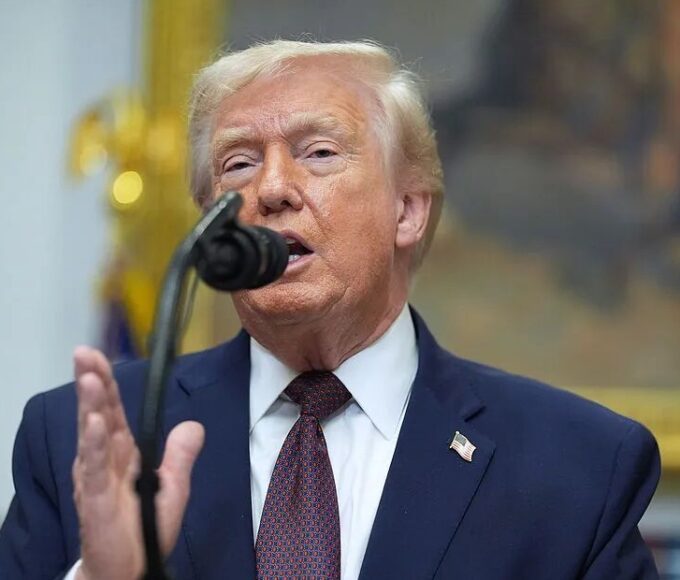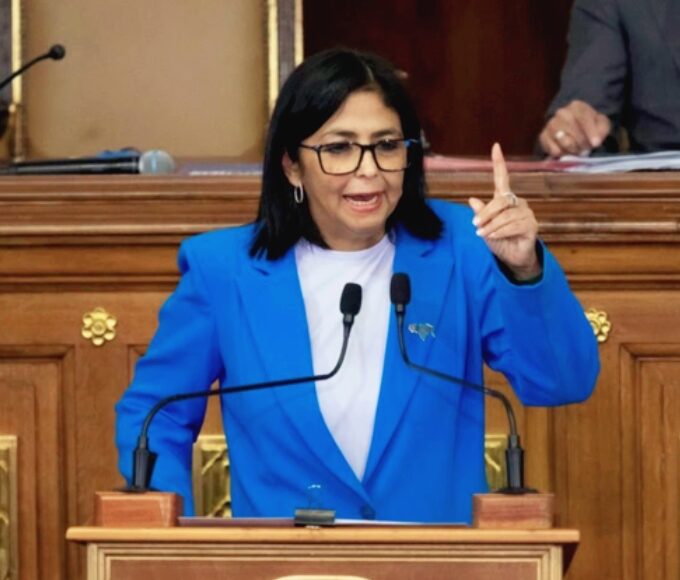When U.S. President Trump expressed his desire to “purchase” Greenland during his first term, many people did not take his words seriously. However, when he returned to the White House this year and repeatedly emphasized the idea, the international community finally realized that the U.S. president was not joking. It is worth noting that some U.S. Republicans have already started preparing “legislation” to help Trump achieve his goal. Although some American media acknowledge that the annexation of Greenland “would only happen if the stars align perfectly,” Washington’s actions have caused anxiety in Denmark and the European Union, leading to increased militarization of Greenland. “Even if full annexation is unlikely… imagine Trump using tariffs or other measures to force other countries into submission, this is not crazy,” wrote U.S. news site Vox.
“Make Greenland Great Again?”
“This is not a joke.” On January 30, U.S. Secretary of State Rubio made this statement during an interview when discussing President Trump’s remarks about Greenland, a Danish autonomous territory. While Rubio downplayed the threat of U.S. military action against Denmark, Trump had previously repeatedly threatened that he would not rule out the possibility of using military force to take control of Greenland.
**In fact, some Republican lawmakers in the U.S. have already taken concrete steps. According to a report from Fox News on January 13, U.S. Representative from Tennessee, Republican Senator Ogels, proposed a bill called the “Make Greenland Great Again Act.” According to the text obtained by Fox News, the bill would allow Trump to hold talks with Denmark after taking office, and “no later than five calendar days after reaching an agreement with Denmark on the U.S. acquisition of Greenland, the president shall submit the agreement, including all related materials and annexes, to the relevant Congressional committees.” Ogels’ bill has garnered support from at least ten Republican members of Congress.
Some Western media and think tanks have also discussed whether the U.S. could gain control over Greenland through legal means. U.S. political news outlet Politico stated that theoretically, if Greenland declared independence from Denmark, Trump could attempt to purchase it. However, Anderson, a former lawyer at the U.S. State Department and national security expert, stated that under international law, even though purchasing, selling, or stealing territory is not entirely illegal, it is considered taboo. “If the international community does not recognize the purchase as valid and legal, the U.S. would face various complicated issues in trying to benefit from its relationship with Greenland,” Anderson said. He also emphasized that, as the Danish government has stated, they believe they do not have the legal authority to sell Greenland to anyone. Even if Greenland were for sale, whether the locals would be willing to become U.S. citizens remains one of the challenges Trump faces in achieving his goal.
In addition, on January 14, the Australian think tank Lowy Institute published an article titled “Trump’s Legal Options for Acquiring Greenland,” stating that if Greenland were to become independent, it could help Trump achieve some of his goals. The article explained that if Greenland became independent, the U.S. could use a model similar to the “Compact of Free Association” signed with the Federated States of Micronesia, the Republic of the Marshall Islands, and Palau to expand its relationship with Greenland. These three countries are recognized as independent states and are U.N. member states, but their defense and security, as well as certain aspects of their international relations, are controlled by the U.S. According to Singapore’s Lianhe Zaobao, under the Compact of Free Association, the U.S. provides funding to these three Pacific nations as a guarantee for security and budgetary support, in return for which Washington can deploy military facilities in large areas of the central Pacific.
However, the independence of Greenland, mentioned by these media and think tanks, is not easy to achieve. Reuters reported that Greenland’s Prime Minister, Eged, announced on February 4 that, due to Trump’s interest in acquiring the Arctic island, Greenland would hold an autonomous parliamentary election on March 11. The election’s primary topics are expected to include Greenland’s independence, relations with Denmark and the U.S., and the island’s fragile economy, which relies on fisheries and Danish government subsidies. Although all five parties in Greenland’s autonomous parliament support independence, they disagree on how and when independence should be achieved. According to a report from Denmark’s Broadcasting Corporation, all five parties with seats in Greenland’s autonomous parliament have unanimously rejected Trump’s attempt to annex the island.
85% of Locals Don’t Want to Join the U.S.
“Greenland is not for sale!” Danish Prime Minister Mette Frederiksen reiterated this position on February 3 before attending an informal meeting of EU leaders, although she stated that Denmark is prepared to allow the U.S. to strengthen its military presence in Greenland. A woman from Greenland told that, in her observation, some people in Greenland are willing to accept Trump’s proposal “because it’s profitable.” Some locals, particularly younger people, are unwilling to let Denmark continue ruling Greenland or allow the U.S. to control the island and instead wish for independence. Others firmly oppose Trump’s proposal, and some politicians believe they could benefit from both the U.S. and Danish governments.
An opinion poll conducted by the Danish newspaper Berlingske and Greenland’s Sermitsiaq newspaper, commissioned by the British polling firm YouGov at the end of January, showed that 85% of Greenlanders do not want the Arctic island to become part of the U.S. Only 6% of Greenlanders prefer the U.S. over Denmark, and 9% have not yet decided. The survey also revealed that 45% of respondents view Trump’s interest in Greenland as a threat, 43% see it as an opportunity, and about 13% are undecided. Only 8% of respondents expressed a willingness to change their Danish nationality to U.S. citizenship, while 55% said they would prefer to remain Danish citizens, and 37% have not made up their minds.
From January 6 to 11, U.S. polling company Patriot Polling surveyed 416 Greenlanders, and the results showed that 57.3% of respondents supported the idea of joining the U.S., while 37.4% opposed it, and 5.3% were unsure. Regarding these results, The Hill noted that, according to the renowned polling organization 538, Patriot Polling only received a one-star rating out of three.
In fact, Greenland’s future is not only a geopolitical issue but also involves factors such as local identity, cultural preservation, and economic development. Local resident Danielson is concerned that if Greenland becomes part of the U.S., the local language and culture could quickly disappear due to the island’s population of fewer than 60,000 people. Ivana, from Greenland’s capital Nuuk, told The Guardian that Americans and Greenlanders have very different upbringings, which would lead to significant cultural conflicts. Ninety percent of Greenland’s population are Inuit. Similarly, 27-year-old air traffic controller Hors, also from Nuuk, worries that Trump could cause American-style division in Greenland. “We’ve already seen people wearing ‘Make America Great Again’ hats. I’m afraid they’ll start a propaganda campaign and begin trying to influence our elections and how our government is run.”
According to U.S. news site Vox, although Greenlanders are dissatisfied with Denmark, such as historical incidents where local children were taken and raised by Danes, many Greenlanders still have close family and cultural ties with Denmark. Greenland also receives approximately $500 million annually in social welfare from the Danish government, and Greenlanders have access to free healthcare and education in Denmark. If Greenland were to become a U.S. overseas territory like Puerto Rico, its welfare system might be difficult for Greenlanders to accept.
Some Greenlanders also view the U.S. as an attractive partner. Local cleaner Kirsten mentioned that the rising prices of domestically produced goods in Denmark have led to increasing living costs, and the U.S. might offer better economic opportunities. Other Greenlanders are neither inclined toward Denmark nor the U.S. but instead advocate for full independence. Resident Larsen said he would prefer Greenland to be fully autonomous, not dependent on Denmark or the U.S. Some Greenlanders feel they lack sufficient information to make a clear judgment.
Analysts suggest that one of the reasons Denmark and the EU are unwilling to relinquish Greenland is the geopolitical importance of the Arctic. Thanks to Greenland, Denmark has its current size and is the only EU country with an Arctic coastline, which grants it a seat on the Arctic Council and a voice in Arctic-related issues.













Leave a comment